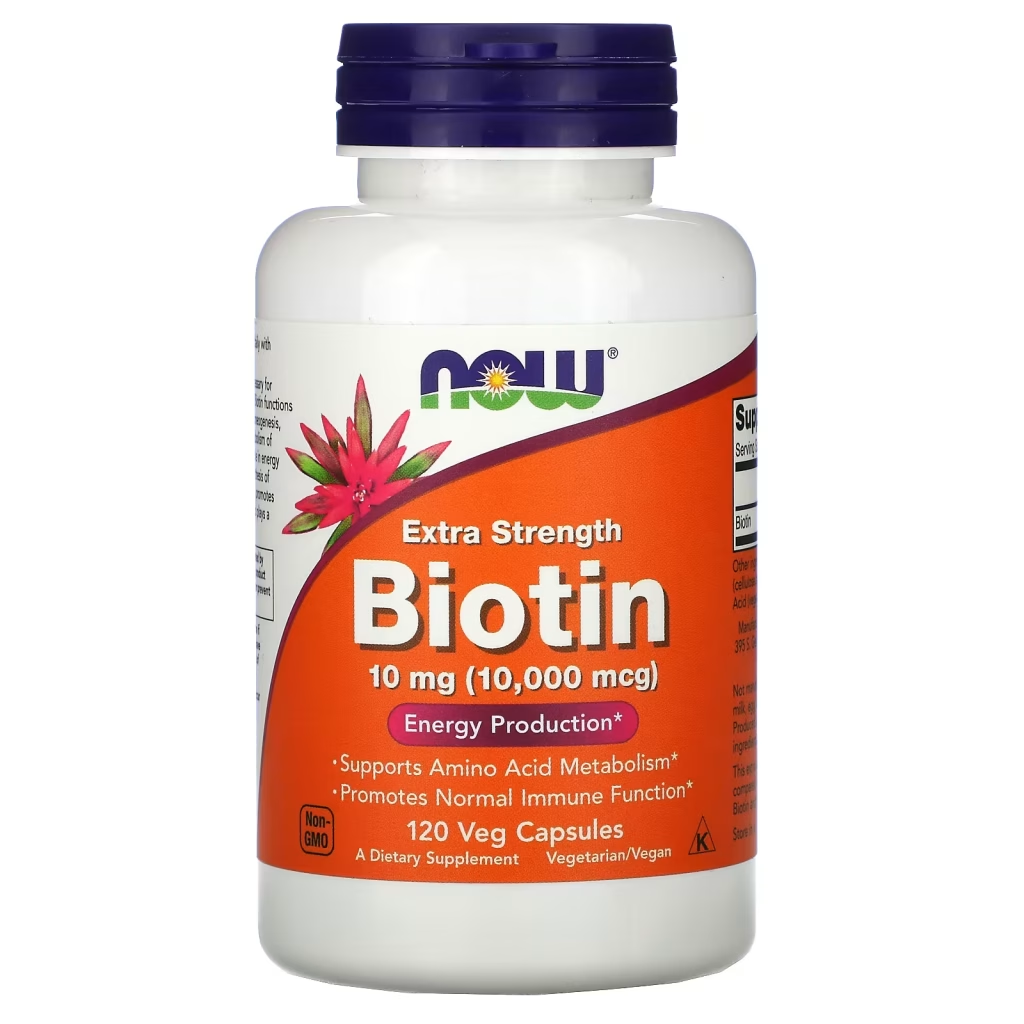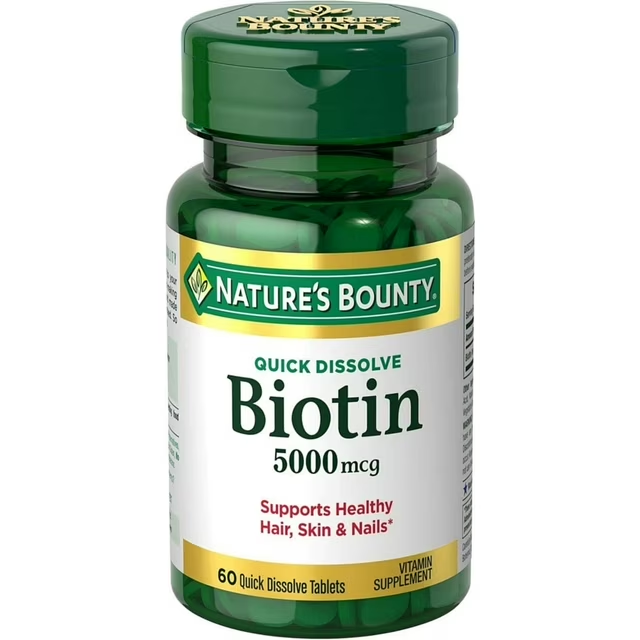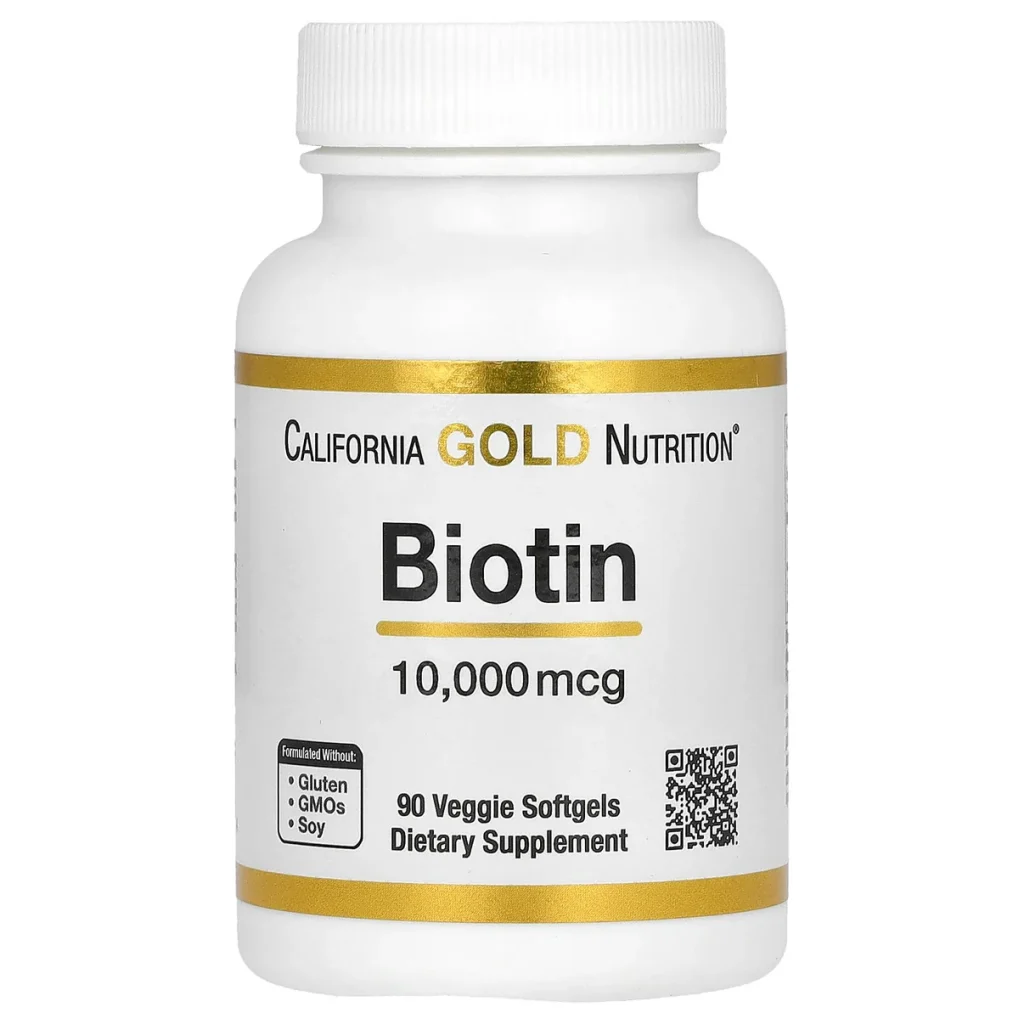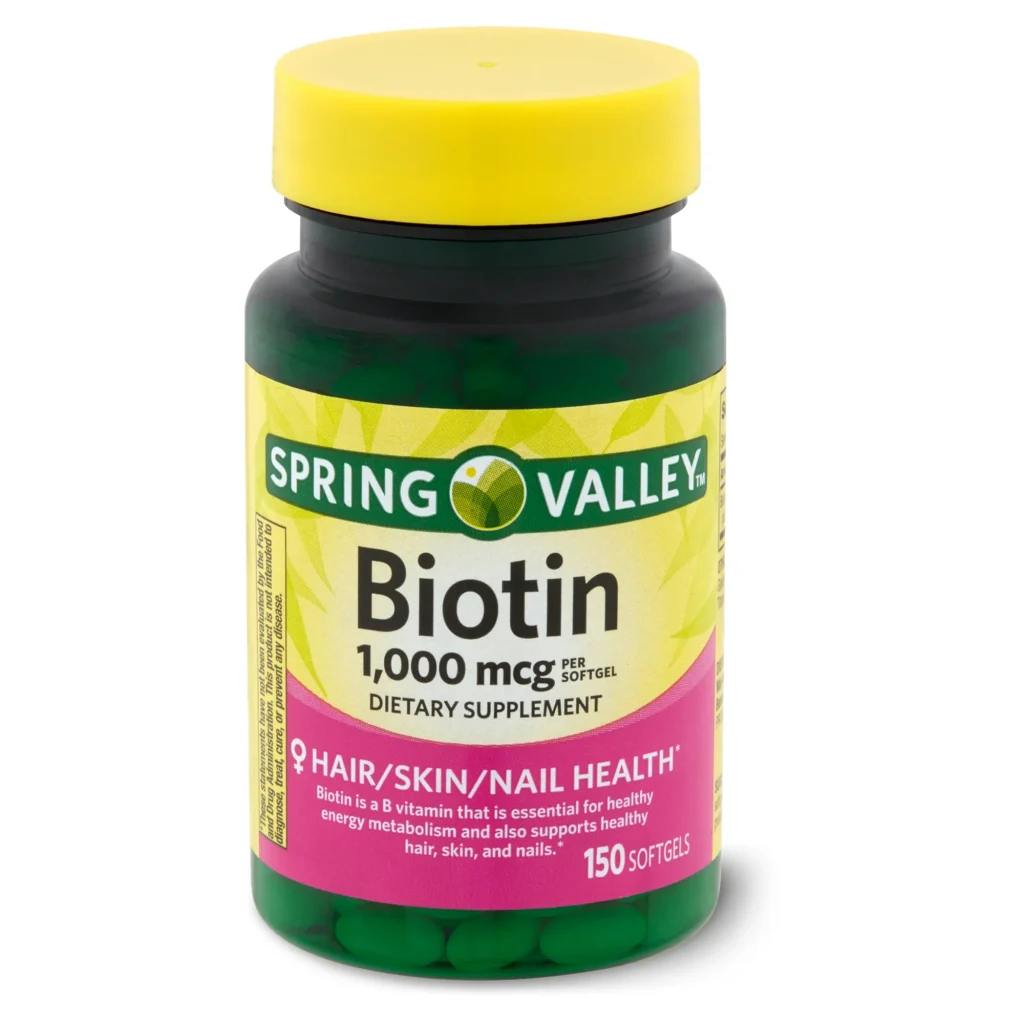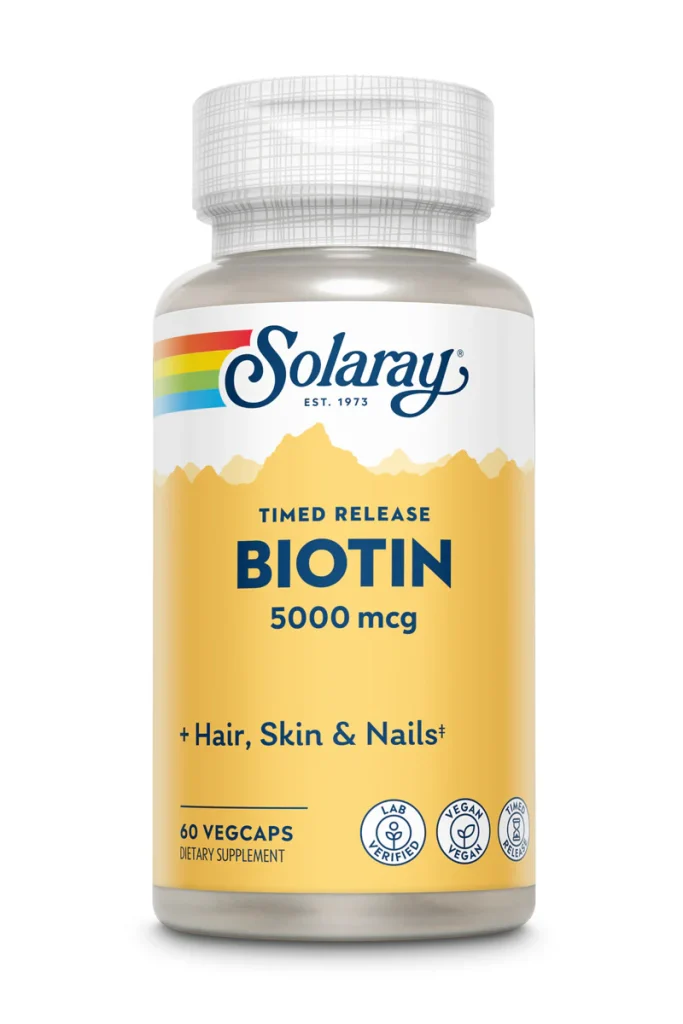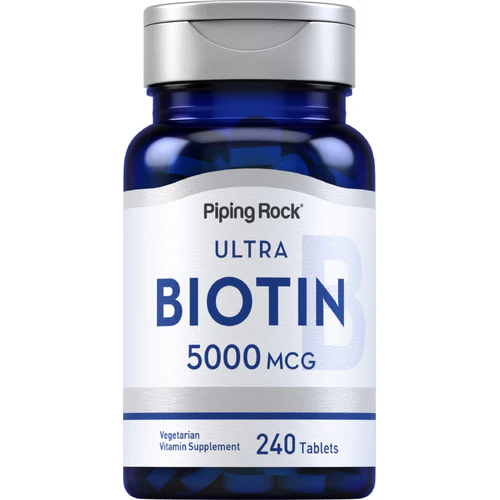What’s D-Biotin ?
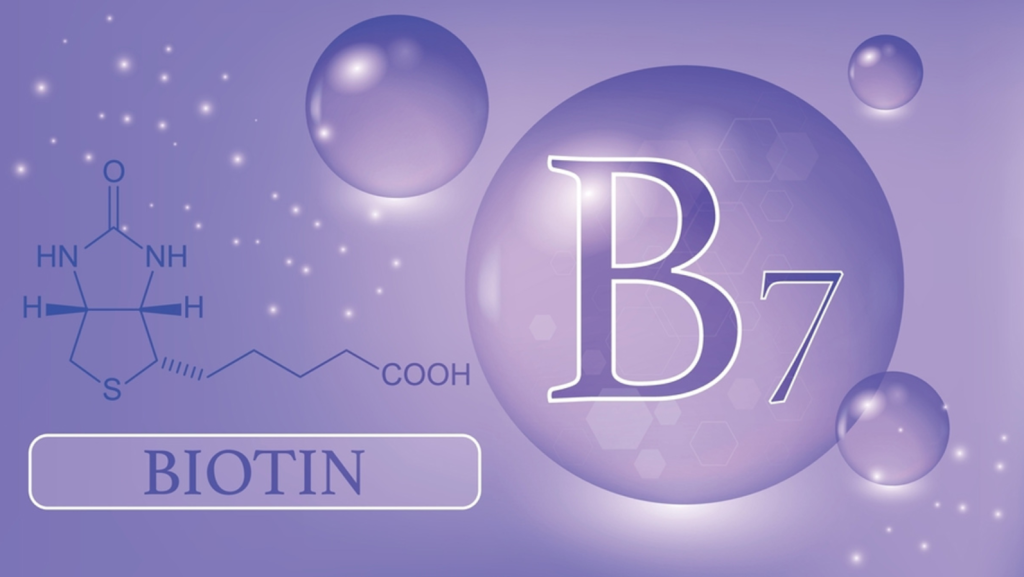
Biotin, classified as vitamin B7 or vitamin H, is a water-soluble nutrient vital for numerous metabolic functions in the body. It serves as a cofactor for several enzymes involved in crucial processes like fatty acid synthesis, gluconeogenesis, and amino acid metabolism.
Biotin also plays a pivotal role in maintaining healthy skin, hair, and nails. Furthermore, it supports proper nervous system function by aiding in neurotransmitter synthesis.
While biotin deficiencies are rare, they can lead to symptoms like hair loss, skin rashes, and neurological issues. Dietary sources of biotin include eggs, nuts, seeds, meats, fish, and certain vegetables.
Most people get the biotin they need from eating a healthy diet, but there have been many claims that getting more biotin can regulate your blood sugar, promote healthy hair, skin, and nails, and help pregnant moms have healthier babies. How much biotin is enough, where can you get it, and what can it really do for you?
Health Benefits of D-Biotin
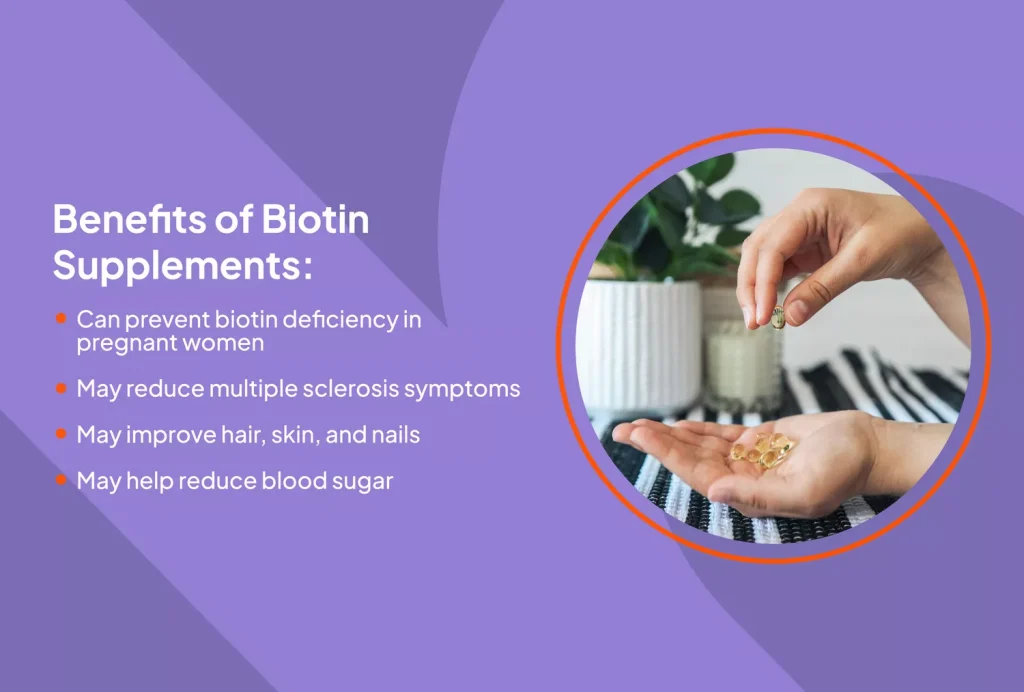
A biotin deficiency occurs when the body doesn’t get enough biotin (vitamin B7), a water-soluble vitamin that plays important roles in metabolism, cellular signaling, and gene regulation.
Biotin is found in many foods, including eggs, meat, nuts, vegetables, and seeds, and is naturally produced by gut bacteria in your digestive system.
D-Biotin supports your skin, hair, and eye health, as well as plays a role in other body functions and pregnancy. You can find biotin in food sources like egg yolk, nuts, and mushrooms.
A biotin deficiency is rare, but some people are more at risk of developing it.
D-Biotin Deficiency Symptoms
Symptoms of D-Biotin deficiency usually appear gradually over time. Some of the most common symptoms include:
- Thinning hair, which can progress to total loss of body hair
- Scaly, red rashes around the nose, eyes, mouth, and perineum (area between the anus and genitals)
- Conjunctivitis (pink eye, or inflammation of the eyeball membrane or inner eyelid)
- Seizures
- Brittle nails
- Depression
- Hallucinations
- Pins and needles feeling in the extremities (arms, hands, legs, feet)
- Low energy
- Developmental delay in infants
- Unusual distribution of facial fat
D-Biotin deficiency can also cause the blood to become too acidic due to high levels of lactic acid and ketone bodies, which can be life-threatening.
Causes and Risk Factors
D-Biotin deficiency doesn’t typically occur in people without health conditions who follow a balanced, omnivorous (plant and animal) diet. However, some groups are more at risk of developing biotin deficiency:
1.People With Biotinidase Deficiency
2.People With Alcohol Use Disorder
3.People Who Are Pregnant or Breastfeeding
4.Other Causes
There are several other causes of biotin deficiency.
Excessive consumption of raw egg whites can lead to biotin deficiency. Raw eggs contain avidin, a protein that binds to biotin in the digestive tract, preventing its absorption.
Natural sources of Biotin

Biotin can also be found in a number of foods, including:
- egg yolk
- organ meats (liver, kidney)
- nuts, like almonds, peanuts, pecans, and walnuts
- nut butters
- soybeans and other legumes
- whole grains and cereals
- cauliflower
- bananas
- mushrooms
Because food-processing techniques like cooking can render biotin ineffective, raw or less-processed versions of these foods contain more active biotin.
What happens if you take too much biotin?
Too much biotin is anything more than the recommended dosage. This recommended amount includes what you naturally get from foods.
There are cases that show negative effects on the health of some individuals who are taking large amounts of biotin supplements and getting too much biotin. The majority of people get enough biotin through a normal diet. You shouldn’t need to take biotin supplements unless directed by a doctor.
High amounts of biotin can create false positives in laboratory tests for thyroid disease.
The main brand of Biotin in the market
